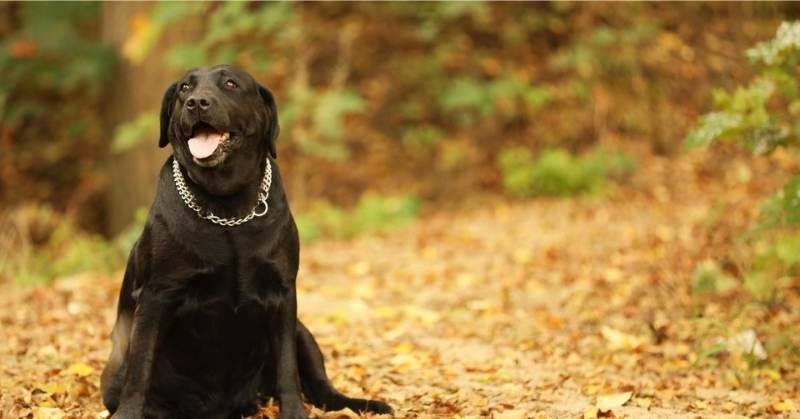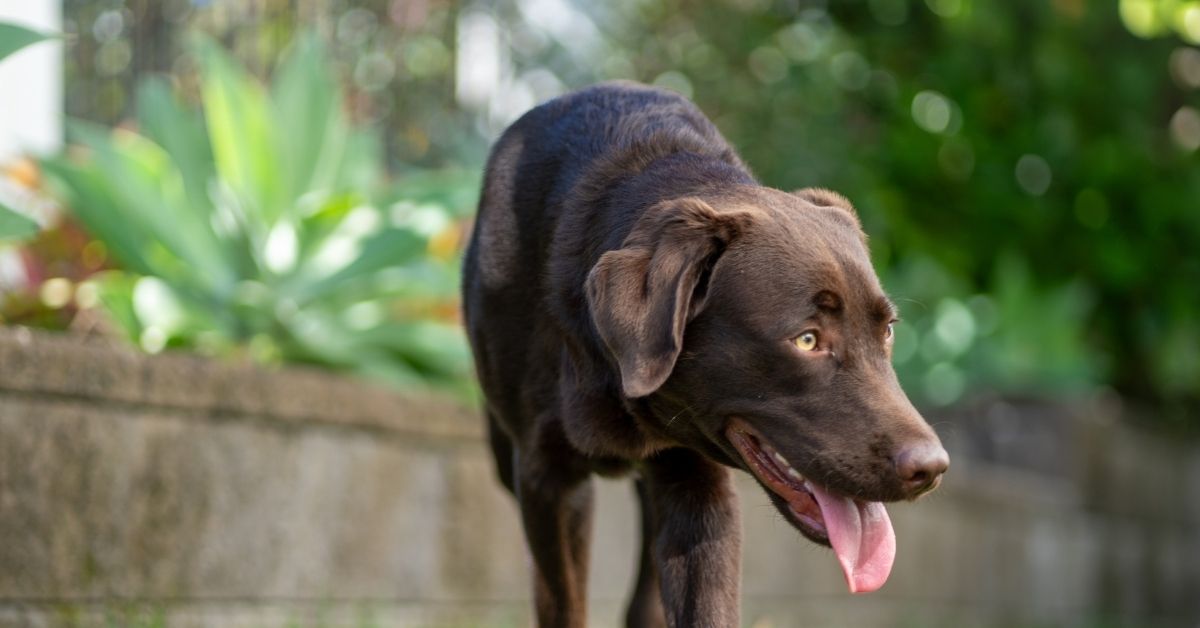
Why Labrador Retrievers Have Incredible Memory & Recall
Labrador retrievers consistently rank among the most popular dog breeds worldwide, and for good reason. Beyond their friendly disposition and unwavering loyalty, these remarkable canines possess an extraordinary gift that often goes unrecognized: their incredible memory capabilities. The cognitive abilities of Labrador retrievers extend far beyond simple trick learning, encompassing complex problem-solving skills, emotional intelligence, and recall abilities that can span years.
Understanding the depth of a Labrador's memory helps explain why these dogs excel in so many roles, from beloved family companions to highly trained service animals. Their memory prowess isn't just impressive—it's a fundamental aspect of what makes Labs such exceptional partners in both work and play.
The Science Behind Canine Memory
To appreciate the remarkable memory of Labrador retrievers, we must first understand how canine memory functions. Dogs possess several types of memory systems, including short-term memory, long-term memory, associative memory, and episodic-like memory. Research in canine cognition has revealed that dogs can form lasting memories much like humans do, storing information about experiences, people, places, and learned behaviors.
Labrador retrievers demonstrate particularly strong capabilities in associative memory—the ability to link experiences with outcomes. This type of memory allows them to remember that certain actions lead to specific consequences, whether positive or negative. For instance, a Lab might remember that sitting by the door leads to walks, or that bringing their favorite toy to their owner results in playtime.
The hippocampus, a brain region crucial for memory formation, is well-developed in Labrador retrievers. This neurological foundation supports their ability to encode, store, and retrieve memories effectively. Studies have shown that Labs can retain information for extended periods, with some memories lasting several years under the right conditions.
How Long Can Labradors Remember?
The duration of Labrador memory varies depending on the type of information and the emotional significance attached to it. Short-term memory in Labs typically lasts between 5 to 30 seconds, similar to other dog breeds. However, their long-term memory capabilities are where Labradors truly shine.
Positive experiences and traumatic events tend to create the strongest, most enduring memories in Labrador retrievers. A Lab might remember a beloved family member who moved away years ago, immediately recognizing them upon reunion. Similarly, they can recall favorite vacation spots, specific routes during walks, and the locations of hidden treats or toys.
Training-related memories in Labradors can persist for months or even years without reinforcement. Professional dog trainers often note that Labs who have been away from training for extended periods can quickly recall previously learned commands and behaviors. This remarkable retention ability makes them ideal candidates for complex training programs and explains their success in various working roles.
The emotional component of memory plays a significant role in how long Labradors retain information. Memories associated with strong positive or negative emotions are more likely to be stored permanently. This is why a Lab might remember a traumatic veterinary experience or, conversely, maintain vivid memories of joyful activities like swimming or playing fetch.
Factors That Influence Labrador Memory
Several factors impact the strength and duration of memory in Labrador retrievers. Age plays a crucial role, with younger Labs typically forming stronger new memories while older dogs may experience some cognitive decline. However, many senior Labs maintain impressive recall abilities well into their golden years.
The quality of early socialization significantly influences memory development in Labrador puppies. Labs exposed to diverse experiences, people, and environments during their critical socialization period (3-14 weeks) often develop superior memory capabilities. These early experiences create a rich foundation of memories that Labs can draw upon throughout their lives.
Nutrition and physical health directly impact cognitive function and memory in Labradors. A balanced diet rich in omega-3 fatty acids, antioxidants, and other brain-supporting nutrients helps maintain optimal memory function. Regular exercise also plays a vital role, as physical activity promotes blood flow to the brain and supports neurological health.
The consistency and quality of training methods affect how well Labradors form and retain memories. Positive reinforcement techniques tend to create stronger, more lasting memories than punishment-based methods. Labs respond particularly well to reward-based training, forming positive associations that enhance memory retention.
Environmental enrichment contributes significantly to memory development and maintenance in Labrador retrievers. Dogs living in stimulating environments with regular mental challenges tend to develop superior cognitive abilities, including enhanced memory function. Puzzle toys, varied walking routes, and new experiences all contribute to keeping a Lab's mind sharp and their memory skills well-exercised.
Real-World Examples of Labrador Retriever Memory
The extraordinary memory capabilities of Labrador retrievers manifest in countless real-world scenarios that consistently amaze their owners. These practical demonstrations of their recall abilities highlight just how remarkable these dogs truly are.
Many Lab owners report instances of their dogs remembering people they haven't seen for years. One documented case involved a Labrador who immediately recognized and enthusiastically greeted a family friend who had been absent for three years. The dog's reaction was immediate and unmistakable, demonstrating the lasting nature of social memories in Labs.
Labradors also display impressive geographical memory. They can remember complex routes, returning to specific locations even after long absences. Hunting Labs often demonstrate this ability by remembering the exact locations where birds fell during previous hunting trips, sometimes returning to search areas from seasons past.
The problem-solving memory of Labradors is equally impressive. Many Labs remember solutions to puzzles or challenges they encountered previously, applying learned strategies to similar situations. This adaptive memory allows them to build upon past experiences and continuously improve their problem-solving abilities.
Service and therapy Labs showcase some of the most remarkable examples of memory in action. These dogs must remember complex sequences of tasks, recognize subtle changes in their handler's condition, and respond appropriately to dozens of different commands. Their ability to retain and apply this extensive training demonstrates the true depth of Labrador memory capabilities.
Training Techniques That Leverage Labrador Memory
Understanding how Labrador memory works allows owners and trainers to develop more effective training strategies. Labs learn best when training sessions are structured to support their natural memory processes and cognitive strengths.
Repetition remains fundamental to helping Labradors form lasting memories, but the spacing of practice sessions matters significantly. Distributed practice—spreading training sessions over time rather than conducting marathon training sessions—helps Labs retain information more effectively. Short, frequent training sessions allow time for memory consolidation between practice periods.
The use of multiple senses during training enhances memory formation in Labradors. Incorporating visual cues, verbal commands, and physical guidance helps create multi-sensory memories that are more robust and easier to recall. This approach explains why Labs often respond better to hand signals combined with verbal commands than to either cue alone.
Creating positive emotional associations during training sessions significantly improves memory retention in Labs. When learning is associated with enjoyable experiences, treats, praise, and play, Labradors form stronger memories that are more readily accessible. This emotional component makes training more effective and helps maintain learned behaviors over time.
Progressive difficulty in training tasks helps Labs build upon existing memories while developing new ones. Starting with simple commands and gradually increasing complexity allows Labs to use their existing knowledge as a foundation for learning new skills. This scaffolded approach leverages their memory strengths while preventing overwhelm.
Memory and Problem-Solving in Labrador Retrievers
The connection between memory and problem-solving abilities in Labrador retrievers reveals the sophisticated nature of their cognitive processes. Labs don't simply remember isolated facts or commands; they integrate memories to solve new challenges and adapt to changing situations.
Working memory—the ability to hold and manipulate information temporarily—is particularly well-developed in Labradors. This capability allows them to remember multiple components of a task while executing complex behaviors. For example, a Lab performing a retrieve might remember the location of multiple items, the specific item requested, and the proper delivery technique simultaneously.
Labs demonstrate remarkable ability in what researchers call "flexible thinking"—using remembered information in new contexts. A Lab who has learned to open doors using handles can often transfer this knowledge to different types of doors or latches. This cognitive flexibility, supported by their excellent memory, makes them highly adaptable companions.
The problem-solving memory of Labradors also extends to social situations. They remember individual personalities and preferences of family members, adjusting their behavior accordingly. A Lab might remember that one family member enjoys gentle greetings while another prefers enthusiastic welcomes, demonstrating sophisticated social memory and adaptation.
Comparing Labrador Memory to Other Breeds
While all dogs possess memory capabilities, Labrador retrievers consistently demonstrate superior recall abilities compared to many other breeds. Breed-specific traits and selective breeding have enhanced certain cognitive abilities in Labs, including their remarkable memory.
Research comparing memory abilities across dog breeds has found that Labs consistently rank among the top performers in memory-related tasks. Their working dog heritage, combined with centuries of selective breeding for intelligence and trainability, has resulted in enhanced cognitive abilities that include superior memory function.
The retriever instinct in Labs is closely tied to their memory capabilities. These dogs were bred to remember the locations of multiple downed birds during hunting expeditions, requiring exceptional spatial and sequential memory. This breeding history has contributed to their overall memory excellence.
Compared to breeds selected primarily for other traits, such as guarding or herding, Labs show particular strength in associative memory and learning retention. While other breeds may excel in different cognitive areas, the well-rounded memory abilities of Labs make them exceptionally versatile companions.
The Role of Memory in Labrador Retriever Behavior
Memory plays a crucial role in shaping Labrador behavior patterns and personality traits. Understanding this connection helps explain many of the behaviors that make Labs such beloved companions while also providing insights into potential behavioral challenges.
The friendly, outgoing nature of Labradors is partly supported by their excellent social memory. Labs remember positive interactions with humans and other animals, contributing to their generally trusting and sociable disposition. This memory-supported social confidence makes them excellent therapy and service dogs.
Separation anxiety in some Labs can be understood through the lens of their strong memory capabilities. These dogs form deep emotional memories with their families, and their ability to vividly recall positive interactions can intensify their distress when separated. However, the same memory abilities that contribute to separation anxiety can be leveraged to help Labs cope with alone time through proper training and gradual conditioning.
The notorious Labrador appetite and food-seeking behavior is also memory-driven. Labs remember food sources, feeding times, and successful foraging experiences with remarkable precision. This strong food-related memory, while sometimes challenging for owners, demonstrates the survival value of their memory capabilities.
Labrador loyalty and bonding are enhanced by their memory abilities. These dogs remember acts of kindness, shared experiences, and emotional connections with their human families. The depth of these memories contributes to the strong bonds Labs form and their reputation as devoted companions.
Maintaining and Enhancing Memory in Aging Labs
As Labrador retrievers age, maintaining their cognitive abilities and memory function becomes increasingly important for their quality of life. Understanding how aging affects memory in Labs helps owners provide appropriate support and enrichment for their senior dogs.
Cognitive decline in aging Labs can affect different types of memory to varying degrees. While some senior Labs may show decreased ability to learn new information, their long-term memories often remain remarkably intact. Many older Labs continue to recognize familiar people, remember favorite activities, and retain well-learned behaviors.
Mental stimulation becomes crucial for maintaining memory function in senior Labradors. Regular mental exercises, puzzle toys, and continued learning opportunities help keep aging brains active and engaged. Even simple activities like hiding treats or practicing familiar commands can provide valuable cognitive exercise.
Physical exercise remains important for memory maintenance in aging Labs, though activities may need modification to accommodate physical limitations. The connection between physical activity and cognitive health means that maintaining appropriate exercise levels supports memory function even as dogs age.
Dietary considerations become more important for memory support in senior Labs. Supplements containing omega-3 fatty acids, antioxidants, and other brain-supporting nutrients may help maintain cognitive function. However, any dietary changes should be made in consultation with a veterinarian.
The Future of Understanding Labrador Memory
Research into canine cognition continues to reveal new insights into the remarkable memory capabilities of Labrador retrievers. Advanced neuroimaging techniques and sophisticated behavioral studies are providing unprecedented views into how Labs process, store, and retrieve memories.
Emerging research suggests that Labs may possess even more sophisticated memory abilities than previously recognized. Studies investigating episodic-like memory in dogs indicate that Labs might be capable of remembering specific events with remarkable detail, including when and where experiences occurred.
The practical applications of research into Labrador memory extend beyond basic understanding to improving training methods, enhancing working dog performance, and supporting the human-animal bond. As we learn more about how Labs form and use memories, we can develop more effective approaches to training, care, and interaction.
Understanding the genetic basis of memory abilities in Labradors may eventually lead to insights that benefit both canine and human cognitive health. The similarities between canine and human memory systems make Labs valuable subjects for research that could have broader implications for understanding memory and cognitive function.
Conclusion
The incredible memory capabilities of Labrador retrievers represent one of their most remarkable and valuable traits. From their ability to remember beloved family members across years of separation to their capacity for learning and retaining complex training sequences, Labs demonstrate cognitive abilities that continue to amaze researchers and dog lovers alike.
Understanding and appreciating the memory abilities of Labrador retrievers enhances our relationship with these exceptional dogs while providing insights into effective training, care, and interaction strategies. Their remarkable recall abilities, combined with their loving nature and eagerness to please, create companions that are truly unforgettable.
Whether serving as family pets, working dogs, or therapeutic companions, Labrador retrievers use their exceptional memory capabilities to form deep bonds, solve complex problems, and adapt to their human families' needs. Their incredible memories are not just cognitive curiosities—they are fundamental aspects of what makes Labs such extraordinary partners in our lives.
The next time you watch your Labrador remember exactly where they buried their favorite bone or see the joy of recognition when they greet a long-absent friend, take a moment to appreciate the remarkable cognitive machinery at work. The memory of a Labrador retriever is truly a gift that enriches both their lives and ours, creating lasting bonds built on shared experiences and unforgotten moments of connection.
📸 Photo Credits: Featured images in this article are licensed from Shutterstock



